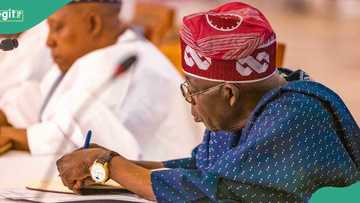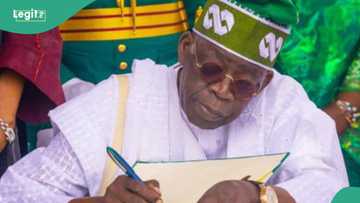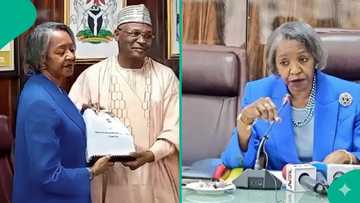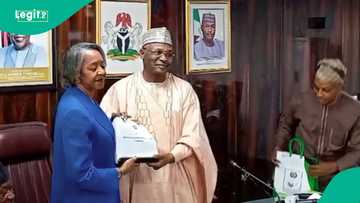10 Defining Moments of Mahmood Yakubu’s Decade as INEC Chairman
- Professor Mahmood Yakubu left INEC after a decade marked by technological innovation, major reforms, and two nationwide general elections
- His tenure introduced BVAS and IReV, reshaping Nigeria’s voting and result transmission system for greater transparency
- May Agbamuche-Mbu took over as acting chairman as Yakubu bowed out, ending the longest service by any INEC leader
Professor Mahmood Yakubu has formally handed over the leadership of the Independent National Electoral Commission (INEC) to Mrs May Agbamuche-Mbu, who will now serve as acting chairman pending a substantive appointment.
His ten years as head of Nigeria’s election management body marked a historic era that combined innovation, controversy, and major electoral reforms.
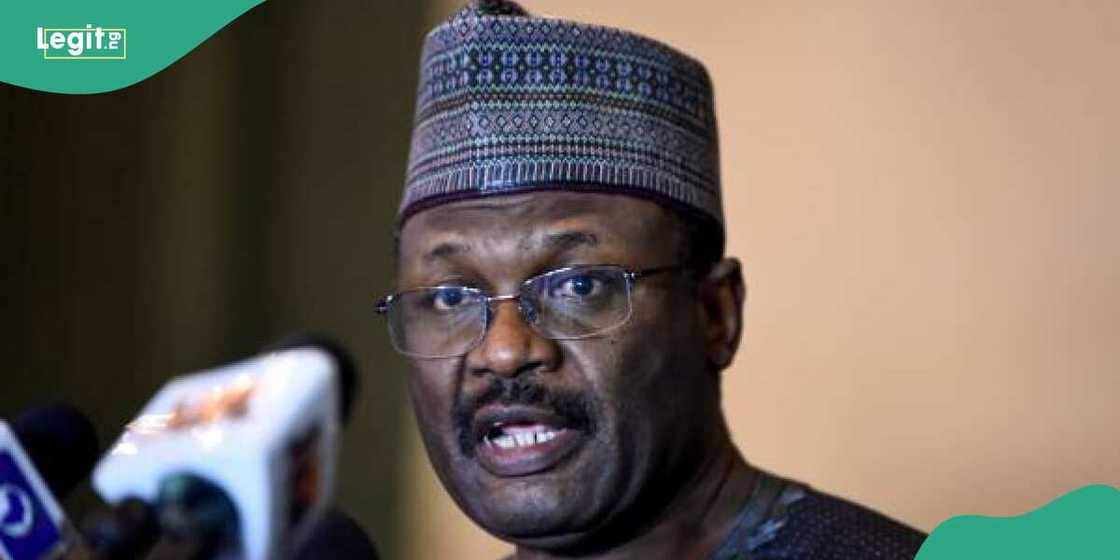
Source: Facebook
Before his appointment in 2015 by former president Muhammadu Buhari, Yakubu served as the Executive Secretary of the Tertiary Education Trust Fund.
Taking over from Professor Attahiru Jega, he assumed office at a time of growing public demand for transparency in Nigeria’s electoral process.
Below are ten defining highlights of his tenure as INEC Chairman from 2015 to 2025.
1. Longest-Serving INEC Chairman
Professor Yakubu set a new record as the first chairman of INEC to serve two full terms in office. His leadership spanned a complete decade, from 2015 to 2025. The extended tenure provided him with a rare opportunity to implement structural and technological reforms across multiple electoral cycles.
2. Introduction of BVAS and IReV
His administration pioneered the introduction of the Bimodal Voter Accreditation System (BVAS) and the INEC Results Viewing Portal (IReV).
These innovations transformed how Nigerians voted and how results were transmitted, bringing a level of transparency that significantly reduced incidents of multiple voting and manual manipulation.
3. Expansion of the National Voter Register
Under Yakubu’s leadership, Nigeria’s voter register expanded to over 93 million names, the largest in Africa. This milestone followed nationwide voter registration drives aimed at increasing participation and strengthening democratic inclusion.
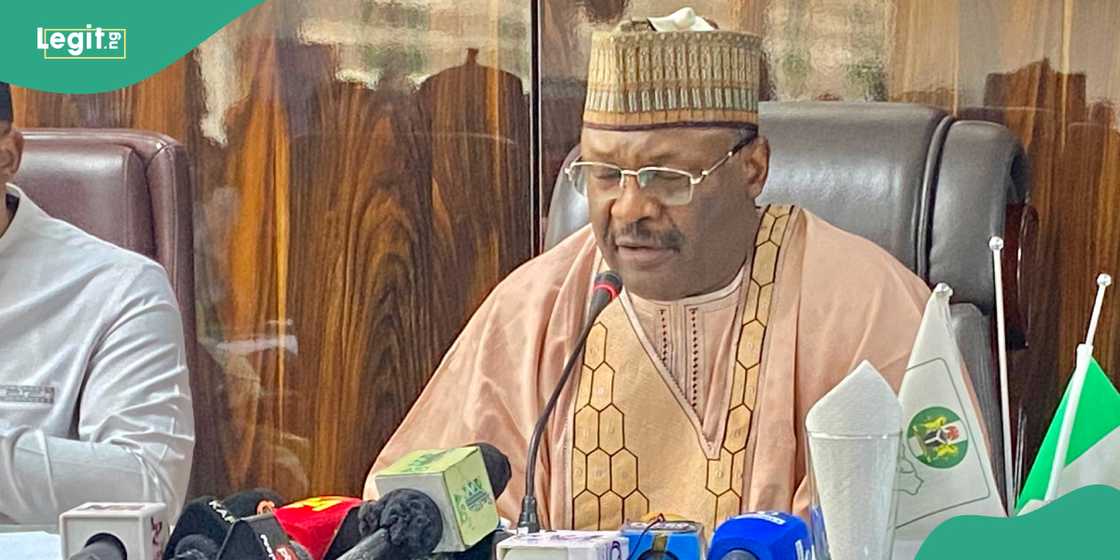
Source: Twitter
4. Continuous Voter Registration (CVR)
Yakubu institutionalised a continuous voter registration system that allowed Nigerians to register, transfer, or update their voter details even outside election seasons. The process modernised data management within the commission and ensured a more dynamic and accurate voter database.
5. Conduct of Two General Elections
He successfully supervised the 2019 and 2023 general elections, each involving complex logistics across 176,000 polling units. Despite operational challenges and political pressure, INEC managed to conduct nationwide elections while maintaining a functional framework that enabled credible outcomes in several states.
6. Strengthened Voter Education and Inclusion
The commission under Yakubu expanded voter education and awareness campaigns, particularly among youth, women, and persons with disabilities. His administration launched initiatives promoting equal participation and encouraged political parties to nominate more women and young candidates.
7. Improved Election Logistics and Planning
Yakubu’s team improved the logistics chain for election materials through early deployment strategies and stronger collaboration with security agencies. These changes helped mitigate delays and improved the credibility of elections, especially in remote and high-risk areas.
8. Enhanced Collaboration with Stakeholders
INEC under his watch maintained steady engagement with political parties, civil society groups, and international partners. These partnerships promoted dialogue on electoral reforms and enhanced public confidence in the electoral process, particularly around technology-driven innovations.
9. Digital Transformation of INEC Operations
Yakubu spearheaded the commission’s digital transition. From candidate nomination and observer accreditation to real-time election result transmission, INEC adopted technology at nearly every stage of its operation. This transformation marked a shift from paper-heavy administration to data-centric decision-making.
10. Institutional Reforms and a Legacy of Independence
Despite facing criticism and political challenges, Yakubu’s tenure was defined by an effort to maintain INEC’s autonomy. His administration laid a framework that prioritised technology, transparency, and professional conduct. He often reminded staff of the commission’s constitutional duty to remain impartial and accountable to the Nigerian people.
INEC shuts offices in Kwara
Earlier, Legit.ng reported that fear gripped several communities in Kwara state following fresh attacks by suspected terrorists, popularly known as bandits, who are now targeting politicians and electoral officials.
Legit.ng gathered that on Sunday night, gunmen stormed Sakpefu community in the Lade district of Patigi Local Government Area and abducted the wife and daughter of the local chairman of the All Progressives Congress (APC), Alhaji Mohammed Swasun.
Source: Legit.ng

